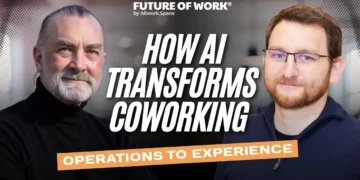What’s going on:
A new study published by McKinsey & Co. reveals the potential implications of AI technology on U.S. job security. The study reveals that, over the next seven years, women are 1.5 times more likely than men to need to change jobs due to AI technology impacting industries with lower-wage jobs, according to the New York Post.
The analysis estimates that certain industries with high representation of women, such as office support and customer service, could face significant job losses. Additionally, certain other demographic groups, such as Blacks and Hispanics, are also at a higher risk of facing the brunt of automation due to higher representation in these industries as well.
The New York Post reports that not all high-paying jobs are immune; roles like lawyers and civil engineers could see some aspects of their jobs automated.
In total, projections from McKinsey & Co. anticipate that a minimum of 12 million employees will be required to shift careers by 2030, triggered by advancements in AI, the rise of automation, and environmental considerations.
Why it matters:
This McKinsey report highlights the urgent need for action to prepare for the impact of advanced AI tools on the workforce. It highlights the need for re-skilling and up-skilling, particularly among the most vulnerable groups and in the most heavily impacted industries.
Women’s participation in the workforce has reached record highs this year. However, the Mckinsey & Co. study draws attention to the potential social and economic impacts that AI is likely to have on women if this issue is not addressed.
How it’ll impact the future:
Many analysts predict that AI technology will dramatically reshape the future of work by eliminating thousands of jobs across a wide range of industries. Business leaders and regulators could cut these losses by establishing programs and safeguards in the form of new policies.
These policies, in theory, could help better protect people who are more at risk of losing their jobs due to automation. However, it will more than likely not prevent automation from happening. Therefore, other programs that are more focused on skill development could help employees feel more secure in their jobs moving forward.



 Dr. Gleb Tsipursky – The Office Whisperer
Dr. Gleb Tsipursky – The Office Whisperer Nirit Cohen – WorkFutures
Nirit Cohen – WorkFutures Angela Howard – Culture Expert
Angela Howard – Culture Expert Drew Jones – Design & Innovation
Drew Jones – Design & Innovation Jonathan Price – CRE & Flex Expert
Jonathan Price – CRE & Flex Expert












